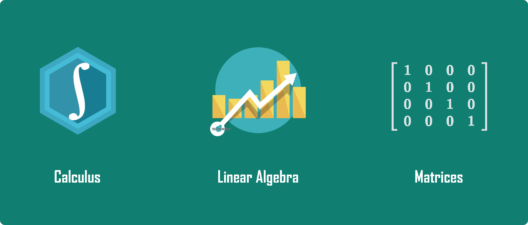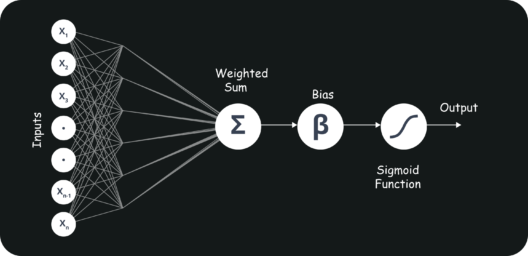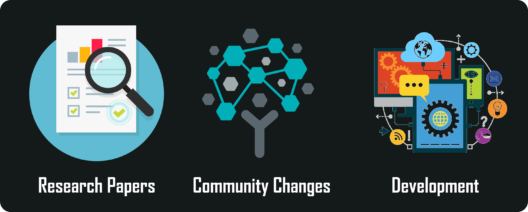Prompt Engineering with Generative AI
- 7k Enrolled Learners
- Weekend
- Live Class
We are living in the world of humans and machines. Humans have been evolving and learning from their past experience for millions of years. On the other hand, the era of machines and robots have just begun. The future of machine is enormous and is beyond our scope of imagination. We leave this great responsibility on the shoulder of a particular individual namely Machine Learning Engineer. So, let us have a look at some of Machine Learning Engineer Skills required to become a successful ML Engineer.
In this article I’ll be covering the following Topics:
So before we get acquainted with the Machine Learning Engineer Skills, Let us first understand who exactly is a ML Engineer.
Machine learning engineers are sophisticated programmers who develop machines and systems that can learn and apply knowledge without specific direction.

Artificial intelligence is the goal of a machine learning engineer. They are computer programmers, but their focus goes beyond specifically programming machines to perform specific tasks. They create programs that will enable machines to take actions without being specifically directed to perform those tasks.
Transform yourself into a highly skilled professional and land a high-paying job with the Artificial Intelligence Course.
Now that we know, who is an ML Engineer, let’s move forward to the Machine Learning Engineer Skills one by one.

The first and foremost requirement is to have a good grip on a programming language, preferably python as it is easy to learn and its applications are wider than any other language. Python is the lingua franca of Machine Learning.
It is important to have a good understanding of topics like Data structures, Memory management, and classes. Although Python is a very good Language, it alone cannot help you. You will probably have to learn all these languages like C++, R, Python, Java and also work on MapReduce at some point.

Familiarity with Matrices, Vectors and Matrix Multiplication is required. A good understanding of Derivatives and Integrals is necessary, cause even simple concepts like gradient descent might elude you.
Statistical concepts like Mean, Standard Deviations and Gaussian Distributions are required along with probability theory for algorithms like Naive Bayes, Gaussian Mixture Models, and Hidden Markov Models.
One of the few Machine Learning Engineer Skills is also the understanding of Signal Processing and having the ability to solve different problems using Signal Processing techniques as feature extraction is one of the most important parts of Machine Learning.
 Knowledge of Time-frequency Analysis and Advanced Signal Processing Algorithms such as Wavelets, Shearlets, Curvelets, and Bandlets will help you to solve complex situations.
Knowledge of Time-frequency Analysis and Advanced Signal Processing Algorithms such as Wavelets, Shearlets, Curvelets, and Bandlets will help you to solve complex situations.

A lot of machine learning techniques out there are just fancy types of function approximation. Having a firm understanding of Algorithm theory and understanding subjects such as Gradient Descent, Convex Optimizations, Quadratic Programming, and Partial Differentiation will help a lot.

Neural Networks are a class of models within the general machine learning literature. Neural networks are a specific set of algorithms that have revolutionized machine learning.
We need machine learning for tasks that are too complex for humans to code directly, i.e. tasks that are so complex that it is impractical. Neural Networks are themselves general function approximations, which is why they can be applied to almost any machine learning problem about learning a complex mapping from the input to the output space.
Neural networks have been by far the most accurate way of approaching many problems, like translation, speech recognition, and image classification.

Since Natural Language Processing combines two of the major areas of work ie. Linguistics and Computer Science and chances are at some point you’re going to work with either text or audio or video. So it’s necessary to have good control over libraries like Gensim, NLTK, and techniques like word2vec, sentimental analysis, and summarization.
Voice and Audio analysis involves extracting useful information from the audio signals themselves. Being well versed in math and concepts of Fourier Transformation will get you far in this one.
Now that we have seen the Technical Machine Learning Engineer Skills, let us have a look at the Non-Technical Machine Learning Engineer Skills
The most successful machine learning projects out there are going to be those that address real pain points. Whichever industry you’re working for. You should know how that industry works and what will be beneficial for the business.

If a Machine Learning Engineer does not have business acumen and the know-how of the elements that make up a successful business model, all those technical skills cannot be channeled productively. You won’t be able to discern the problems and potential challenges that need solving for the business to sustain and grow. You won’t really be able to help your organization explore new business opportunities.

You’ll need to explain ML concepts to people with little to no expertise in the field. Chances are you’ll need to work with a team of engineers, as well as many other teams. Communication is going to make all of this much easier.
Companies searching for a strong ML Engineer are looking for someone who can clearly and fluently translate their technical findings to a non-technical team, such as the Marketing or Sales departments.

Iterating on ideas as quickly as possible is mandatory for finding one that works. In machine learning, this applies to everything from picking the right model, to working on projects such as A/B testing.
You need to do a group of techniques used to quickly fabricate a scale model of a physical part or assembly using three-dimensional computer-aided design (CAD) data.

You must stay up to date with any up and coming changes. Every month new neural network models come out that outperform previous architecture.
It also means being aware of the news regarding the development of the tools theory and algorithms through research papers, blogs, conference videos, etc. Online community changes quickly.

You might be in a situation where you’d like to apply machine learning techniques to systems that will interact with the real world. Having some knowledge of Physics will take you far.
Reinforcement Learning has been a driver behind many of the most exciting developments in deep learning and artificial intelligence in 2017. This is will be critical to understanding if you want to go into robotics, Self-driving cars, or any other AI-related area.
Computer Vision and Machine Learning are two core branches of Computer Science that can function and power very sophisticated systems that rely on CV and ML algorithms exclusively but when you combine the two, you can achieve even more.
So with this, we come to an end of this article. I hope you got an understanding of the various Technical as well as the Non-Technical Machine Learning Engineer Skills that are required to become a successful ML Engineer.
ML makes computers learn the data and making own decisions and using in multiple industries. It resolves the complex problem very easily and makes well-planned management. Our MLOps certification course provides certain skills to streamline this process, ensuring scalable and robust machine learning operations.
Edureka’s Machine Learning Training makes you proficient in techniques like Supervised Learning, Unsupervised Learning, and Natural Language Processing. It includes training on the latest advancements and technical approaches in Artificial Intelligence & Machine Learning such as Deep Learning, Graphical Models and Reinforcement Learning.
Got a question for us? Please mention it in the comments section of the “Machine Learning Engineer Skills” article and we will get back to you
| Course Name | Date | Details |
|---|---|---|
| Machine Learning Course Masters Program | Class Starts on 25th January,2025 25th January SAT&SUN (Weekend Batch) | View Details |
 REGISTER FOR FREE WEBINAR
REGISTER FOR FREE WEBINAR  Thank you for registering Join Edureka Meetup community for 100+ Free Webinars each month JOIN MEETUP GROUP
Thank you for registering Join Edureka Meetup community for 100+ Free Webinars each month JOIN MEETUP GROUP
edureka.co
